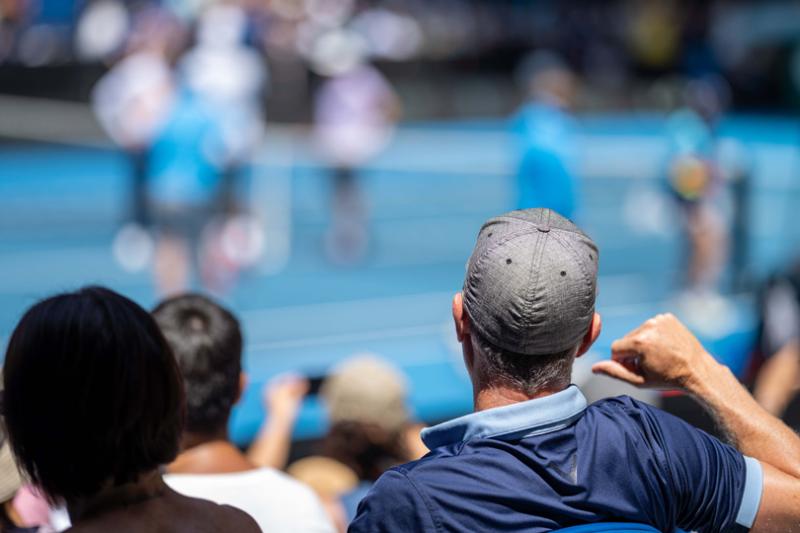Breakdancing in the Olympics? The Games have a long history of taking chances

Surfing, skateboarding, karate and sport climbing will be the new sports included in the Tokyo 2021 Olympic Games, with BMX freestyle (think halfpipe snowboarding but on bikes) and 3x3 basketball (teams of three playing on a half court with on basket) added as disciplines in existing sports.
The Beijing 2022 Winter Games will feature seven new events — freestyle skiing big air (men’s and women’s), women’s monobob (solo bobsledding) and mixed team events in short-track speed skating, ski jumping, freestyle skiing aerials and snowboard cross.
The latest Olympic sport added to the 2024 Paris Games is “breaking”, which started as a form of dancing associated with hip hop culture and has morphed into a well-organised competitive sport governed by the World DanceSport Federation.
Not everyone is thrilled by the inclusion of breakdancing in the games, but this is all part of the ongoing transformation of the Olympics as it seeks to remain relevant to younger audiences more familiar with halfpipes than equestrian dressage.
A push for younger, more extreme sports
In fact, new sports are continually being added to the Olympics, while others are dropped.
Wrestling (a sport dating back to the ancient Olympics) was axed from the Tokyo Olympics only to be reinstated several months later. Baseball and softball were both in the games, then out, then in again (Tokyo 2021), then out again (Paris 2024).
Other sports, such as golf and rugby, were part of the Olympics in the early 1900s, then dropped for decades before being added back in.
The impetus for some of these changes can be traced to the International Olympic Committee’s Agenda 2020 policy document released in 2014. The objective was to usher the Olympic movement into a new modern era with a focus on sports that are more youth-oriented, do not require expensive venues, can ensure more gender balance and are television-friendly.
With the IOC often criticised as being male-centric and old-fashioned, the current IOC president, Thomas Bach, has been a major driver of this new way of thinking and modernising of the Olympics.
The IOC has also been pushed in some ways by the strong influence of the Extreme Games, launched in 1995 and later rebranded the X Games.
This event, with both a summer and winter version, was developed by the ESPN sports network. And it’s certainly made for TV: the focus is on action sports that have a high degree of “spectacle”.
Due to their success, the Olympic movement was reasonably quick to embrace several sports that originated in the X Games.
Summer Games are maxed out in terms of size
In 1994, the Olympics shifted to a new two-year, alternating cycle for the summer and winter games. This brought increased visibility for the Winter Olympics, which began adding new sports and grew rapidly in size.
Curling, women’s hockey and snowboarding were added to the 1998 Nagano Games program. Fourteen years later, an unprecedented 12 new events had their debut at the Sochi 2014 Winter Games.
As a result, the Winter Games have blossomed from 16 events and 49 medals in 1924 to a record 109 events and 327 medals at the 2022 Beijing Winter Games.
Although the summer games have also grown gradually, they have been unable to add as many new sports due to size limitations and logistical factors. The summer games are over twice as large as the winter games in terms of budget and the number of athletes that take part. They also require far more purpose-built venues.
The Tokyo games are expected to feature 11,092 athletes in 339 events, but this will actually shrink to 10,500 athletes and 329 events for the 2024 Paris Olympics.
Logically, if new contemporary sports like breakdancing are added, others (like baseball and softball) will have to go. Athlete numbers will also need to be reduced in existing sports, as will happen at the Paris games.
The IOC also has a gender-balance goal for athletes and it is expecting to reach 50-50 parity for the first time in Paris.
A history of obscure events, from pesapallo to kite flying
Until 1992, numerous sports were included in the Olympics as “demonstration” events. Medals were awarded, but they were not included in the official tally. The idea was to showcase a local sport of the host country or to trial a sport that could possibly be added as a full medal sport in the future.
There have been a number of unusual and obscure demonstration events in the Games, such as bandy (a mix of ice hockey and field hockey), dogsled racing, tug of war, military patrol (a skiing and shooting sport similar to biathlon), bicycle polo, roller hockey, rope climbing, pesapallo (a Finnish version of baseball) and Australian Rules football.
The 1900 Paris Olympics included a catalogue of strange events, such as cannon firing, fishing, pigeon racing, fire fighting, hot air ballooning and kite flying, though some were part of the adjacent World’s Fair and not considered “official” Olympic events.
The Olympics also have a long tradition of including various forms of arts competitions, as well. From 1912–48, an “Art Olympics” ran alongside the summer games, with medals across five categories: architecture, music, literature, sculpture and painting.
Not everyone is embracing the addition of breakdancing to the Olympic program. Some sports like netball and squash have lobbied unsuccessfully to be included in the Olympics for years — and were disappointed yet again for being passed over for the 2024 games.
Some purists are not fans of the Olympics’ embrace of youth-oriented sports, either. Bob Costas, the veteran US sports commentator, once compared slopestyle skiing to the types of pranks shown on the MTV television program Jackass.
Breaking may be the lucky winner for 2024, but many other new sports are knocking on the door to get into the summer games.
As the IOC attempts to keep pace with a changing world, it is likely we will see even more changes to the Olympic landscape for the Los Angeles 2028 summer games.
And if Brisbane does follow through on a bid to host the 2032 games, could we expect to see Aussie rules football back on the program?![]()
This article is republished from The Conversation under a Creative Commons license. Read the original article.
The Conversation: Breakdancing in the Olympics? The Games have a long history of taking chances
College of Sport & Exercise Science
Institute for Health & Sport
Snowboarding and freeskiing got to the Olympics by carving their own path
The Conversation, 7 February 2018
Going for gold: why tenpin bowling should become an Olympic sport
The Conversation, 14 August 2015



